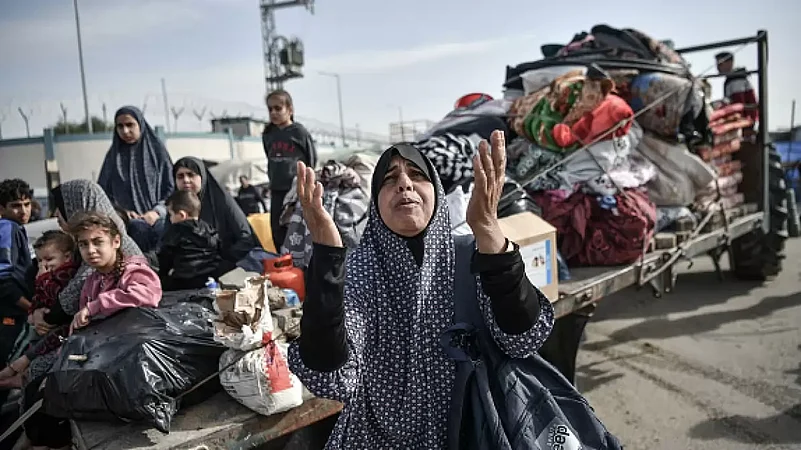“I see bloodied faces on my phone when I open social media…I stay in bed, helpless. There isn’t much I can do except pray for the safety of my people who are being massacred by the thousands,” Rifat Kassis, activist in the West Bank.
For aid workers, humanitarian workers, and activists who strive to help and comfort the needy during conflicts, every day in Gaza is a day filled with despair and death. Israel’s mounting attacks on civilians in Gaza has left many in dire need of help. But with no food, water and medicines, aid workers are left with little to no means to do the same. They in fact, become the target.
Over 20,000 have been killed in Gaza so far. Of them, many were women, and just-borns. Humanitarian staff are often trying to work without power or communications, through mass displacement and the deaths of relatives, colleagues and friends. Activists have played a crucial role in not just decrying the violence, but also giving voice to the voiceless at a time when Gaza is under a total siege. But death has approached many of them, many times.
Khaled Abuqare, a Palestinian activist, reiterates that the war did not start on October 7, rather it escalated on October 7. “Ethnic cleansing of Palestinians by the Israelis has been going on since 1948—since the Nakba, since more than 750,000 Palestinians were expelled from their land. Hence, it was a challenge to explain our side of the story. The mainstream media has been ignoring the Palestinian narrative,” he goes on to say.
Chris Hook, who has been working with the Médecins Sans Frontières (MSF)/Doctors Without Borders since 2015, recalls how doctors in Gaza are currently facing challenges that no doctor should face – to prioritise care for some over the others, because they might have a better chance to live. Many of them die, he says.
Christmas passed a few days ago. A holiday known for bringing cheer, joy and togetherness. But in the West Bank, the mistletoe or holly have been replaced by bombs and the chorus of carollers has been replaced by screams of dying people, says Rifat Kassis, a Christian Palestinian human rights activist, author, and speaker, who is presently living in the West Bank. Christmas passed a few days ago. Israeli strikes killed at least 70 in central Gaza’s Maghazi refugee camp on that day.
As you read this, bombs are still falling in Gaza. And these Gazans are still trying to survive. In Outlook’s issue ‘We Bear Witness’, we bring their voices to you


























